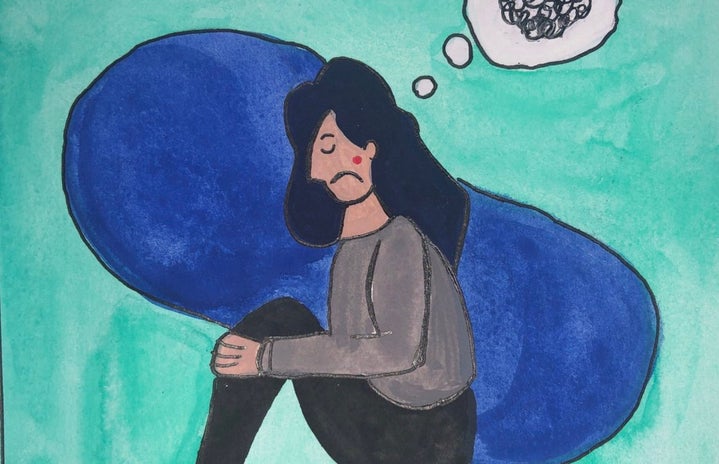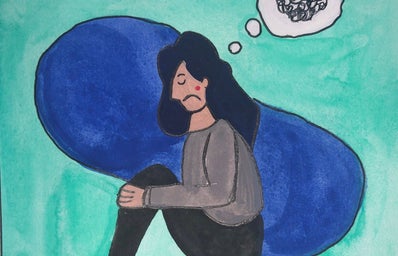I’ve suffered from anxiety for over a decade, spanning well into my time as a student in elementary, middle, and high school. I had to learn what seemed like an endless pile of information in such a short amount of time. When I was younger, I assumed I was just stressed with academic work and never tried looking for help. I remember teachers would pull me to the side and tell me to stop overreacting. They would tell me I was looking for attention and that I should “act normal.”
Not only was that extremely degrading, but it also made my anxiety much worse. I became the quiet, shy kid that never spoke in class and always avoided social interaction. I knew I was different from my classmates, I just could never figure out why.
According to the American Psychological Association (APA), people with anxiety have a future-oriented fear. They usually experience intrusive, unrealistic thoughts or concerns that seem to occur frequently.
In 2017, the National Institute of Mental Health (NIMH) reported that about 40 million people worldwide suffer from anxiety. Recent surveys have shown that less than 40% of those with anxiety forego treatment.
So, what is anxiety? What are the signs that you, or someone you may know, are suffering from anxiety?
Occasional anxiety is normal. The temporary fear you might feel before a presentation or an important interview is quite healthy. However, for a person with an anxiety disorder, that worry or fear never actually goes away.
The Invisible Disability Project classifies anxiety as a “hidden” or “unseen” disability that causes physical, mental, or emotional impairment.
There are several different kinds of anxiety disorders. These include generalized anxiety disorder, panic disorder, social anxiety disorder, and separation anxiety. There are also numerous phobia-related anxiety disorders. Most of these diagnoses require a clinical examination and a medical diagnosis.
Throughout the years, some of the more common signs of anxiety have been noted:
- – Hyperventilation (rapid breathing)
- – Heart palpitations
- – Feeling weak & fatigued
- – Sweating
- – Difficulty concentrating
- – Cold feet
- – Insomnia (difficulty sleeping)
When experiencing severe anxiety, or an anxiety attack, the person may begin to shake or tremble. Your hands may shake a lot, or just barely, depending on the person (it’s more noticeable if you’re holding something like a piece of paper or a water bottle). If you’re sitting down, your leg may begin to shake, as well. This is caused by the tension formed in your muscles; these tremors are known as psychogenic tremors.
Living with anxiety, I have experienced most, if not all, of the signs listed above. Giving presentations and speeches in front of a class has always been a nightmare. I’ve tried every trick in the book to lessen the symptoms of my anxiety, from journaling to breathing exercises, to extremely uncomfortable yoga.
Ironically, an education major finds it difficult talking in front of large groups of people. But for me, it’s more than just public speaking. Knowing a project is due in three weeks or an exam is coming up is more than enough to trigger a response.
While I wouldn’t openly consider myself “disabled,” I do agree that anxiety causes unfortunate debilitating effects.
Something I regret not doing in the past was finding a support system. I never reached out to anyone; I kept to myself because I thought I was strong enough to handle it alone. Entering college, I finally understand that support is necessary. My goal for the next few months is to find a counselor or therapist I connect with, to help me on my journey with anxiety.
Anxiety presents itself in multiple ways, differing depending on the person and current circumstances. Your mental health is important, and you have every right to seek improvement.
For students at Pace University who feel like they need to contact a professional for help, you can reach out to the Counseling Center for numerous services:
156 William Street, 8th Floor, NYC
Phone: (212) 346-1526
Office Hours: Monday – Friday, 9:00 a.m. – 5:00 p.m


